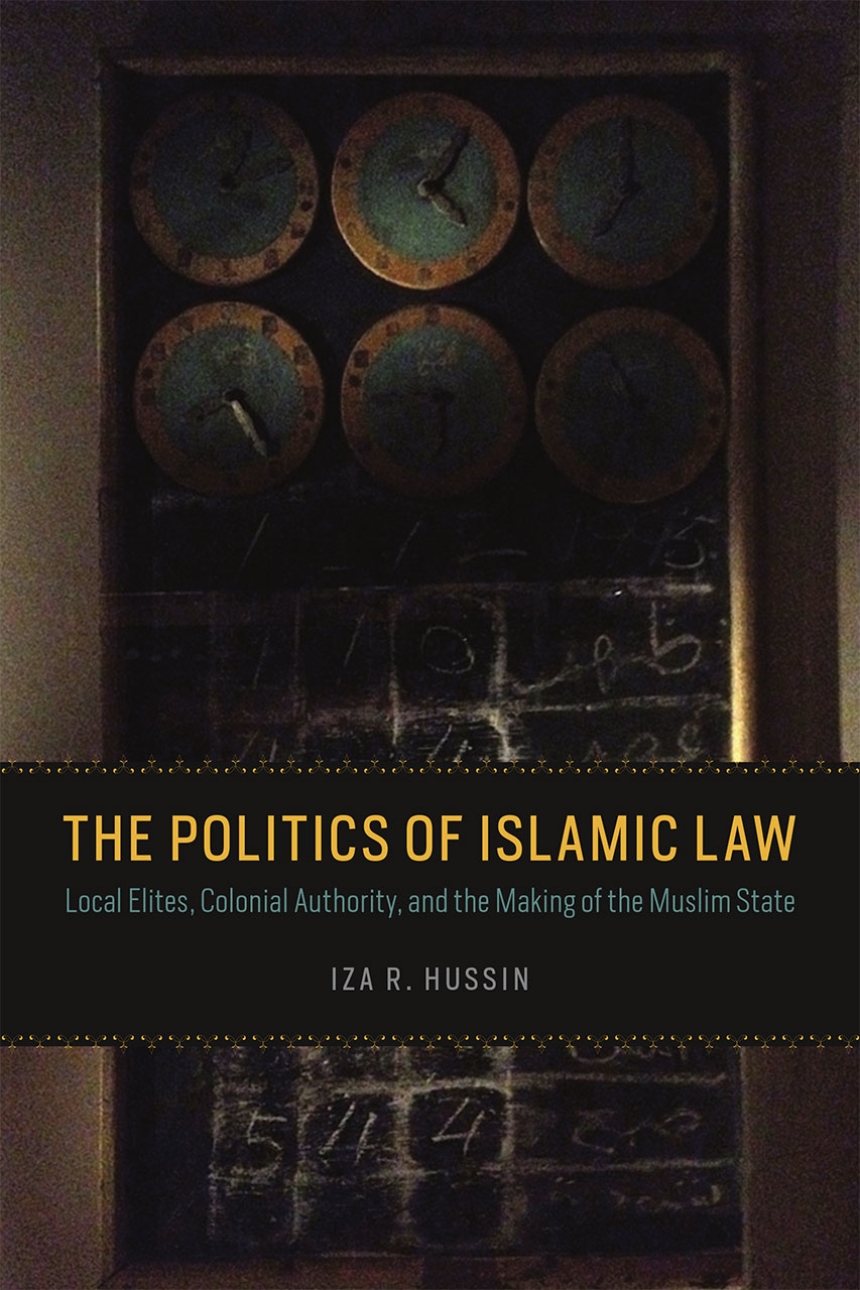The Politics of Islamic Law
Local Elites, Colonial Authority, and the Making of the Muslim State
9780226323343
9780226323480
The Politics of Islamic Law
Local Elites, Colonial Authority, and the Making of the Muslim State
In The Politics of Islamic Law, Iza Hussin compares India, Malaya, and Egypt during the British colonial period in order to trace the making and transformation of the contemporary category of ‘Islamic law.’ She demonstrates that not only is Islamic law not the shari’ah, its present institutional forms, substantive content, symbolic vocabulary, and relationship to state and society—in short, its politics—are built upon foundations laid during the colonial encounter.
Drawing on extensive archival work in English, Arabic, and Malay—from court records to colonial and local papers to private letters and visual material—Hussin offers a view of politics in the colonial period as an iterative series of negotiations between local and colonial powers in multiple locations. She shows how this resulted in a paradox, centralizing Islamic law at the same time that it limited its reach to family and ritual matters, and produced a transformation in the Muslim state, providing the frame within which Islam is articulated today, setting the agenda for ongoing legislation and policy, and defining the limits of change. Combining a genealogy of law with a political analysis of its institutional dynamics, this book offers an up-close look at the ways in which global transformations are realized at the local level.
Drawing on extensive archival work in English, Arabic, and Malay—from court records to colonial and local papers to private letters and visual material—Hussin offers a view of politics in the colonial period as an iterative series of negotiations between local and colonial powers in multiple locations. She shows how this resulted in a paradox, centralizing Islamic law at the same time that it limited its reach to family and ritual matters, and produced a transformation in the Muslim state, providing the frame within which Islam is articulated today, setting the agenda for ongoing legislation and policy, and defining the limits of change. Combining a genealogy of law with a political analysis of its institutional dynamics, this book offers an up-close look at the ways in which global transformations are realized at the local level.
352 pages | 10 halftones, 1 table | 6 x 9 | © 2016
Asian Studies: South Asia
Law and Legal Studies: Law and Society
Political Science: Comparative Politics
Religion: Islam
Reviews
Table of Contents
Acknowledgments
Part One: Contexts
Chapter One: The Historical Roots of a Contemporary Puzzle
Chapter Two: Mapping the Transformation
Part Two: Treaties, Trials and Representations
Chapter Three: The Irony of Jurisdiction: Whose Law Is Islamic Law?
Chapter Four: Trying Islamic Law: Trials in and of Islamic Law
Chapter Five: Making the Muslim State: Islamic Law and the Politics of Representation
Part Three: The Paradox of Islamic Law
Chapter Six: The Colonial Politics of Islamic Law
Chapter Seven: The Contemporary Politics of Islamic Law
References
Awards
APSA Politics and History Section: J. David Greenstone Book Award
Finalist
